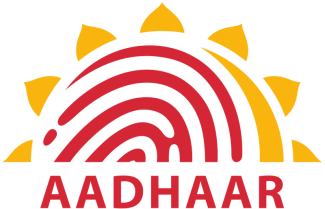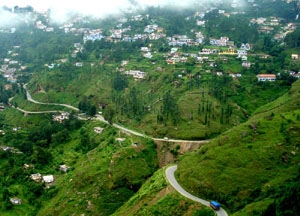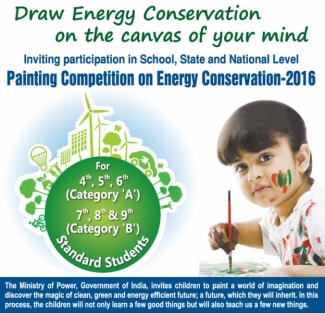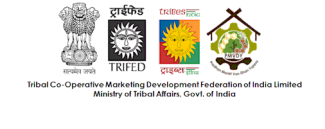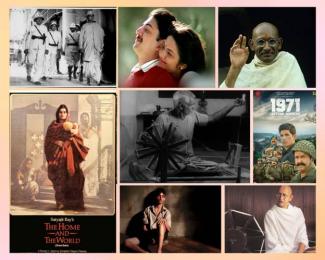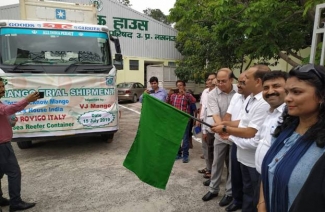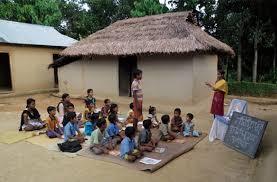
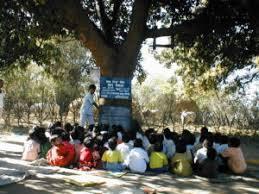
As Ekal Vidyalaya, the informal rural and tribal school system that strives to take education to the last child in the remotest village and hamlet, opened its 100,000th One Teacher School in Sonegarh, Surat district, Gujarat, on December 6, the dreams of a whole generation of rural children have already taken wing.
An independent venture of volunteers associated with the Rashtriya Swayamsevak Sangh (RSS), the first Ekal school was launched by late Madan Lal Agarwal, a businessman from Dhanbad, Jharkhand, in 1988. Later, Shyam Gupta took the responsibility to run these One Teacher Schools and is the guiding force behind them to this day, as the network has rapidly expanded across the country. Today, as many as 2.4 million children are enrolled in Ekal schools nationwide. Bajrang Bagra, former CMD of NALCO, a Navratna company, is the current CEO of Ekal.
Ekal’s goal was to take education to each child in regions not covered by the formal school system, to empower him/her to face the challenges of the modern world with confidence. Union minister Pratap Chandra Sarangi took the Ekal Vidyalaya concept to the remote regions of Odisha in the 1980s. Nearly half of Ekal’s students and teachers are female, and as many as one-fifth pursue further studies; some have even become graduates. Some return to serve the organization.
For children in rural India, Ekal Vidyalaya provides basic education to the age group of 6 to 14 years. The schools run for about three hours daily. The schools have local teachers who teach in the regional language, and impart knowledge of the local culture and history through story-telling, folk dramas, games, folk songs, music and dance. In the process, the children and youth are kept rooted in the local culture and traditions, and not distanced from the same. The teachers take care to inculcate moral values in the students, teach them about health, hygiene, the environment, and the merits of organic farming.
Ekal students perform well in formal schools as they are given lessons in science, maths, language and general knowledge. A typical school has 30-40 students who are taught by a local youth who has passed Grade 8 or 9 and has been specially trained. The classes are held under a tree or in a hut.
Over the last few years, however, teachers have been provided with pre-programmed tabs in some areas, in an attempt to modernize the system. The Ekal teachers are given extensive training in the use of the tabs. It has been noted that the village children are keen to learn from these modern techniques, which over time can give a significant boost to the Digital India movement. In fact, to strengthen the Digital India movement, Ekal is running 23 Ekal on Wheels (mobile computer labs equipped with laptops, a big screen and a trainer) vans that move from village to village.
Ekal constantly improvises and upgrades its teaching and methodology. Recently, it has started Integrated Village Development projects in nine blocks, to link primary education with health and hygiene, skills and nutrition. At Gramothan centres, training is given in computers, tailoring, better farming methodology and use of non-chemical based fertilizers, nutritional gardens, handicrafts etc. They have proved beneficial in empowering men and women in the villages.
The Arogya Foundation imparts training for preventive health care and organizes free medical camps. There is special emphasis on tackling anaemia, which is widely prevalent. Since it works among groups with little access to the formal health system, Ekal imparts information on the treatment of general diseases, maternal and child care. It operates 11,450 health centers for people in rural and tribal areas, and distributes medicines to children for the treatment of various disorders.
The schools run a rural development scheme and promote use of organic fertilizers instead of chemical fertilizers. They offer professional training in agriculture and vermiculture. In May 2011, the Vermicompost Project was launched to introduce self-sustaining practices in 100 poor villages of Orissa and Maharashtra, and in December 2011, the Ekal Vidyalaya staff decided to fight addiction in rural areas. Being entrenched in the local communities, the schools also hold weekly sessions to discuss rural development, health and other concerns.
On January 17, Ekal was informed that it is being awarded the Gandhi Peace Prize for the year 2017 for its contribution in providing Education for Rural and Tribal Children in remote areas pan-India, Rural Empowerment, Gender and Social Equality. This is the highest award in its category by the Government of India.
A few years ago, the Prime Minister Modi asked Ekal to have one lakh schools by 2022, when India celebrates 75 years of Independence. Ekal has now achieved this milestone in 2019.






